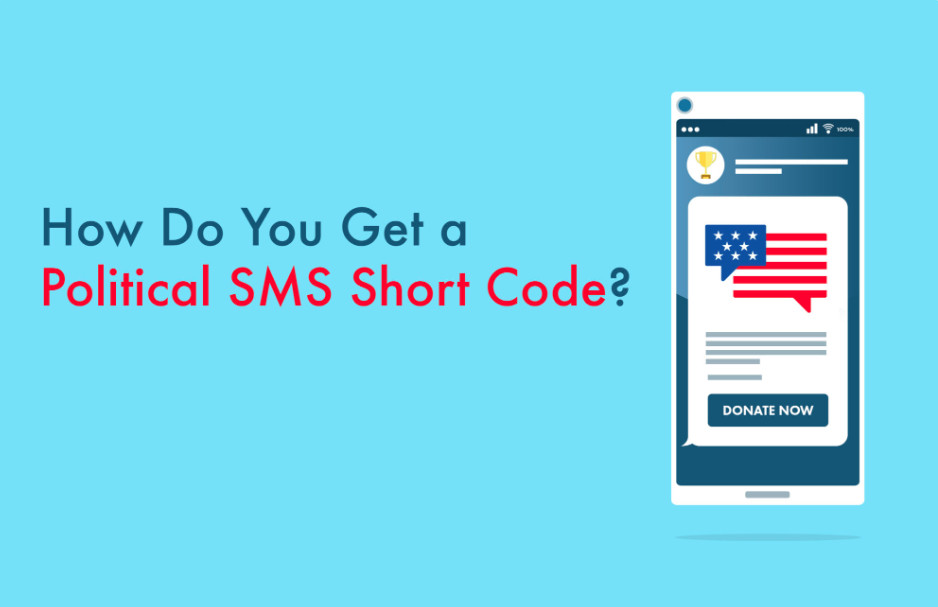In the digital age, effective communication is crucial for businesses and organizations of all sizes. This holds not only for commercial enterprises but also for political parties seeking electoral success. With multiple communication channels available, political SMS shortcodes have emerged as a powerful tool for political campaigns to connect with voters at critical moments. In this article, we will explore the concept of political SMS shortcodes, their types, benefits, and how they can be effectively used to enhance voter engagement and communication.

What are Political SMS Shortcodes?
Political SMS shortcodes are five or six-digit phone numbers that political parties and campaigns use to send text messages to a large audience. Unlike regular phone numbers, shortcodes are shorter and more memorable, making them easier for voters to recall. These shortcodes serve as a direct and cost-efficient channel for political parties to communicate with their supporters, disseminate campaign updates, and engage with the electorate.
Types of Political SMS Shortcodes
There are two main types of political SMS shortcodes commonly used by political campaigns:
-
Vanity Shortcodes: Vanity shortcodes are personalized phone numbers that can be easily associated with a political party or campaign. They are designed to be memorable and recognizable, allowing supporters to easily recall the shortcode when engaging with the campaign. Vanity shortcodes are an effective branding tool, helping political parties build a strong identity and presence in the minds of voters.
-
Generic Shortcodes: Generic shortcodes are randomly assigned to users and are not easily associated with a specific political party or campaign. While they may not have the same memorability as vanity shortcodes, they still serve as a useful communication tool for political campaigns. Generic shortcodes can be used for mass messaging and reaching a wider audience, even if they are not as easily identifiable.
Benefits of Political SMS Shortcodes
Using political SMS shortcodes offers several benefits for political parties and campaigns. Let’s explore some of the key advantages:
1. Enhanced Memorability
The shorter and more distinct nature of political SMS shortcodes makes them highly memorable. Voters are more likely to remember a shortcode associated with a political campaign, enabling easier communication and engagement. By incorporating a shortcode into their marketing materials, advertisements, and social media platforms, political parties can establish a strong connection with their supporters, increasing brand recall and recognition.
2. Increased Response Rates
Shortcodes are well-suited for high-volume interactions, enabling political campaigns to send mass messages to their target audience. These messages can range from event invitations to campaign updates and calls to action. Due to their simplicity and ease of use, shortcodes tend to generate higher response rates compared to longer, standard phone numbers. The convenience and familiarity of shortcodes encourage more people to engage with political SMS messages, leading to increased awareness and participation.
3. Cost-effective and Scalable
Compared to traditional methods of political communication, such as direct mail or phone calls, SMS messages sent via shortcodes are cost-effective. Shortcodes allow campaigns to reach a large audience without incurring significant expenses. Moreover, shortcodes are highly scalable, enabling political parties to expand their reach as needed. They can easily accommodate a growing subscriber base and adapt to changing campaign requirements.
4. Direct and Personalized Communication
Political SMS shortcodes facilitate direct and personalized communication between political parties and voters. Messages sent via shortcodes can be customized to address specific segments of the electorate, making them more relevant and impactful. By leveraging personalization techniques, such as addressing voters by their names or tailoring messages based on their interests, political campaigns can establish a stronger connection with voters, fostering trust and loyalty.
Effective Use of Political SMS Shortcodes
To make the most of political SMS shortcodes, political parties should consider the following strategies:
1. Promote the Shortcode
Promote the shortcode through various channels, such as campaign materials, advertisements, social media platforms, and public appearances. Create visually appealing graphics and slogans that highlight the shortcode and its association with the campaign. This will help voters easily recognize and recall the shortcode, increasing engagement and participation.
2. Encourage Opt-ins
Encourage voters to opt-in to the SMS campaign by texting a keyword to the shortcode. Provide clear instructions and incentives for opting in, such as exclusive campaign updates, event invitations, or special offers. By building a subscriber base, political parties can establish a direct line of communication with their supporters and keep them engaged throughout the campaign.
3. Tailor Messages to Segments
Segment the electorate based on demographics, interests, or geographic location, and tailor messages accordingly. Personalized messages resonate more with voters, increasing the likelihood of engagement and action. Leverage data analytics and voter profiling to understand the preferences and priorities of different segments and craft messages that speak directly to their needs and concerns.
4. Engage in Two-Way Communication
Political SMS shortcodes enable two-way communication between political parties and voters. Encourage supporters to respond to messages, ask questions, or provide feedback. This fosters a sense of inclusivity and involvement, making voters feel heard and valued. Respond promptly to incoming messages, addressing concerns and queries to maintain a positive and interactive communication channel.
5. Timing is Key
Timing plays a crucial role in the effectiveness of political SMS campaigns. Send messages at strategic moments when they are most likely to capture the attention of voters. For example, send reminders about upcoming events or polling days a few days before to ensure maximum turnout. Avoid sending messages during late hours or times when voters may be occupied, as it may lead to lower response rates.
Conclusion
Political SMS shortcodes have revolutionized the way political parties communicate with voters. Their memorability, increased response rates, cost-effectiveness, and personalized nature make them an invaluable tool for enhancing voter engagement and communication. By effectively utilizing political SMS shortcodes, political campaigns can establish a strong brand presence, connect with supporters, and mobilize voters toward their electoral success. Embrace the power of political SMS shortcodes and unlock a new level of voter engagement and participation.
